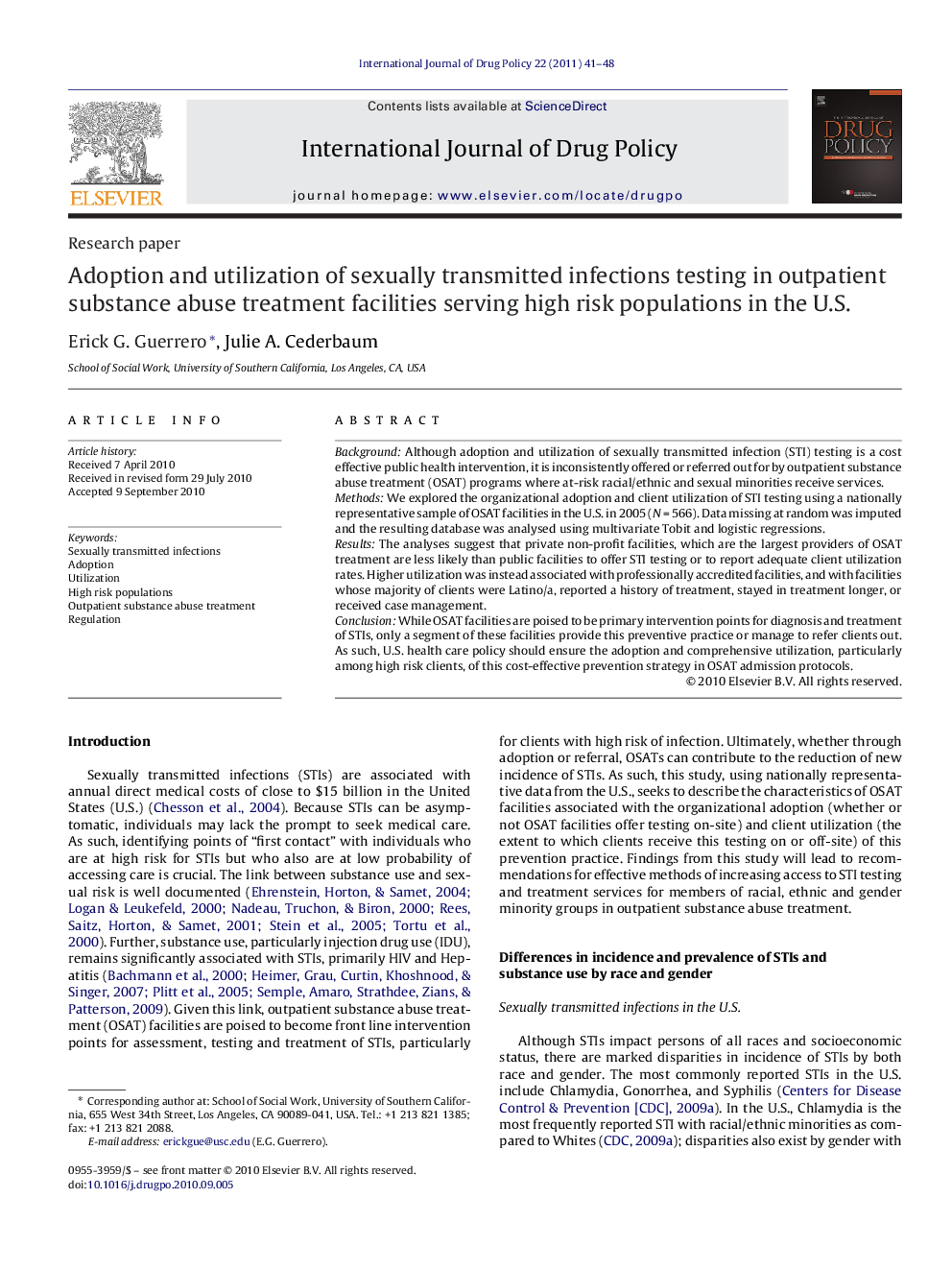| Article ID | Journal | Published Year | Pages | File Type |
|---|---|---|---|---|
| 1075303 | International Journal of Drug Policy | 2011 | 8 Pages |
BackgroundAlthough adoption and utilization of sexually transmitted infection (STI) testing is a cost effective public health intervention, it is inconsistently offered or referred out for by outpatient substance abuse treatment (OSAT) programs where at-risk racial/ethnic and sexual minorities receive services.MethodsWe explored the organizational adoption and client utilization of STI testing using a nationally representative sample of OSAT facilities in the U.S. in 2005 (N = 566). Data missing at random was imputed and the resulting database was analysed using multivariate Tobit and logistic regressions.ResultsThe analyses suggest that private non-profit facilities, which are the largest providers of OSAT treatment are less likely than public facilities to offer STI testing or to report adequate client utilization rates. Higher utilization was instead associated with professionally accredited facilities, and with facilities whose majority of clients were Latino/a, reported a history of treatment, stayed in treatment longer, or received case management.ConclusionWhile OSAT facilities are poised to be primary intervention points for diagnosis and treatment of STIs, only a segment of these facilities provide this preventive practice or manage to refer clients out. As such, U.S. health care policy should ensure the adoption and comprehensive utilization, particularly among high risk clients, of this cost-effective prevention strategy in OSAT admission protocols.
